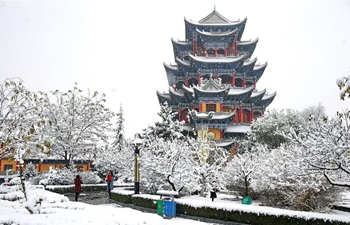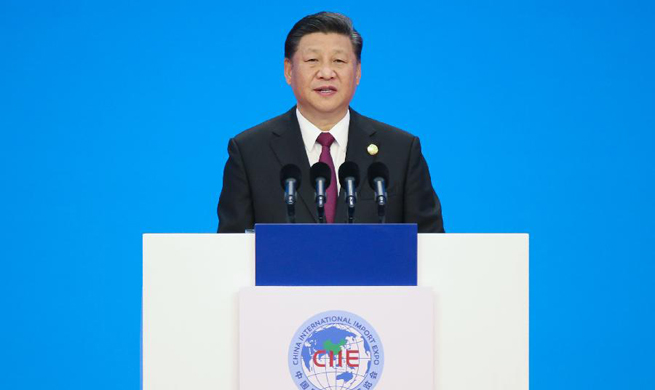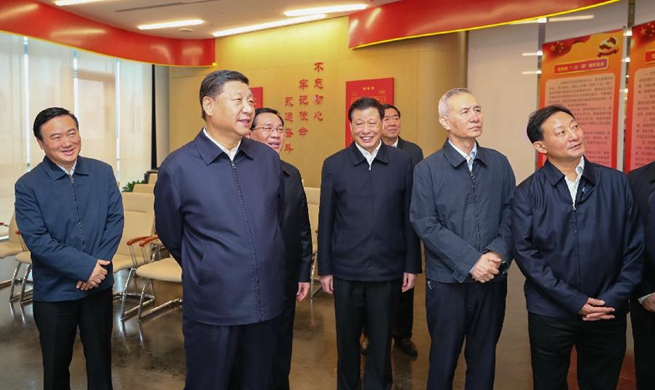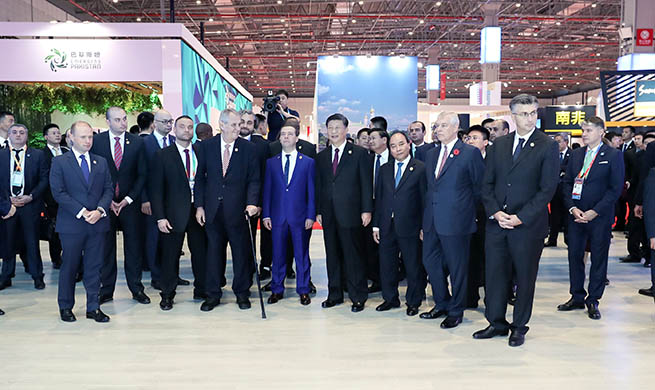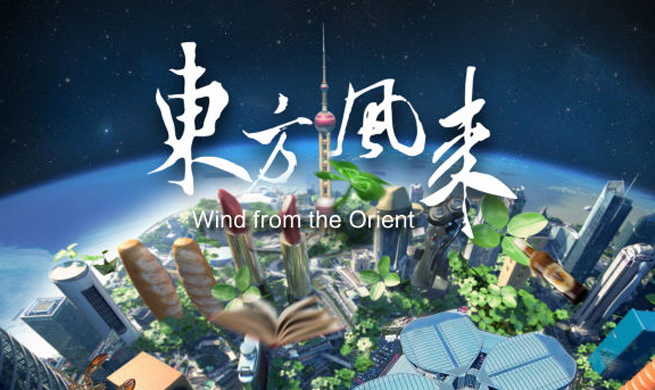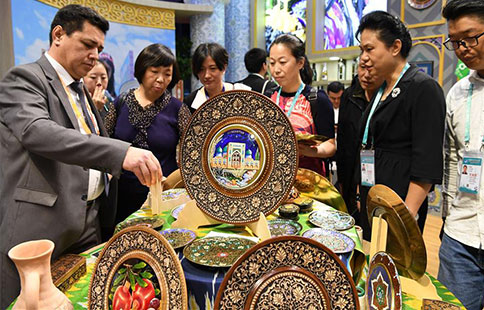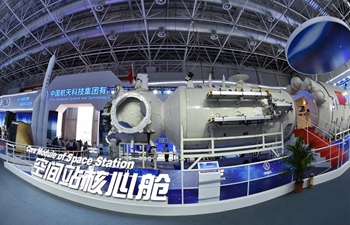SHANGHAI, Nov. 7 (Xinhua) -- For those who complain trade with China is done under unfair rules, they may find it difficult to justify their accusations at the first China International Import Expo (CIIE).
Conversely, trade with China is fair and reciprocal.
Chinese companies shop for billions of dollars in foreign goods at CIIE, the world's first import-themed national-level expo. It underlines China's aspiration of transitioning from selling to the world to buying from the world.
The expo also reinforces messages to the world: China is serious about opening up, the doors will open wider, as it is very clear about the type of changes that need to be made.
At the opening ceremony, Chinese President Xi Jinping announced that in the next 15 years, China's imported goods and services are estimated to exceed 30 trillion U.S. dollars and 10 trillion U.S. dollars, respectively.
Piles of import orders at CIIE show China's commitment is not lip service but real deals.
Chinese e-commerce giant JD.Com is buying 100 billion yuan (around 14.7 billion U.S. dollars) worth of foreign goods from foreign brands, such as Italian coffee machine maker De'Longhi, Japanese rice cooker firm Tiger, and U.S. hardware behemoth Dell, during the CIIE to satisfy the demand of domestic consumers.
After Xi encouraged cross-border trade at the CIIE's opening ceremony, Alibaba Group Holding announced it would list 200 billion U.S. dollars worth of imported goods on its e-commerce platforms from 2019 to 2023.
China has already taken concrete measures to further its opening. Starting November 1, China reduced tariffs on 1,585 imported commodities, and in doing so, cut the total tariff level from 9.8 percent in 2017 to 7.5 percent. At the CIIE, China announced plans to make certain volumes of imported goods tariff exempt. At the expo site, supply-demand matchmaking and one-stop services to assist businesses with customs declarations, transportation and exhibitions have been made available.
One fact that should not be neglected is that while China holds surplus in goods trade, it runs a deficit in service trade.
The Ministry of Commerce (MOC) released a report on the sidelines of the expo showing that China's cumulative service imports are expected to exceed 2.5 trillion U.S. dollars in the next five years.
During that period, China will see over 700 billion U.S. dollars of cumulative imports in emerging services, including charges for the use of intellectual property, telecommunications, computer and information services, financial services, and personal cultural and recreational services. This will provide a broader market, more valuable cooperation opportunities and greater benefits to the world.
When critics say China's pace to narrow the trade gap with its trading partners is too slow, these orders and huge potentials are resonate evidence to answer the grievances of those critics.
"The Chinese economy is a sea, not a pond," Xi said, stressing that storms can overturn a pond but never a sea.
Whatever critics say about China's trade practice, China will not close its door to the world and will only become more and more open.
Little by little, China's practice will prove that a "winner takes all" approach to trade is unsustainable, and an inclusive and multilateral trading system will deliver mutual benefits and greater prosperity.









